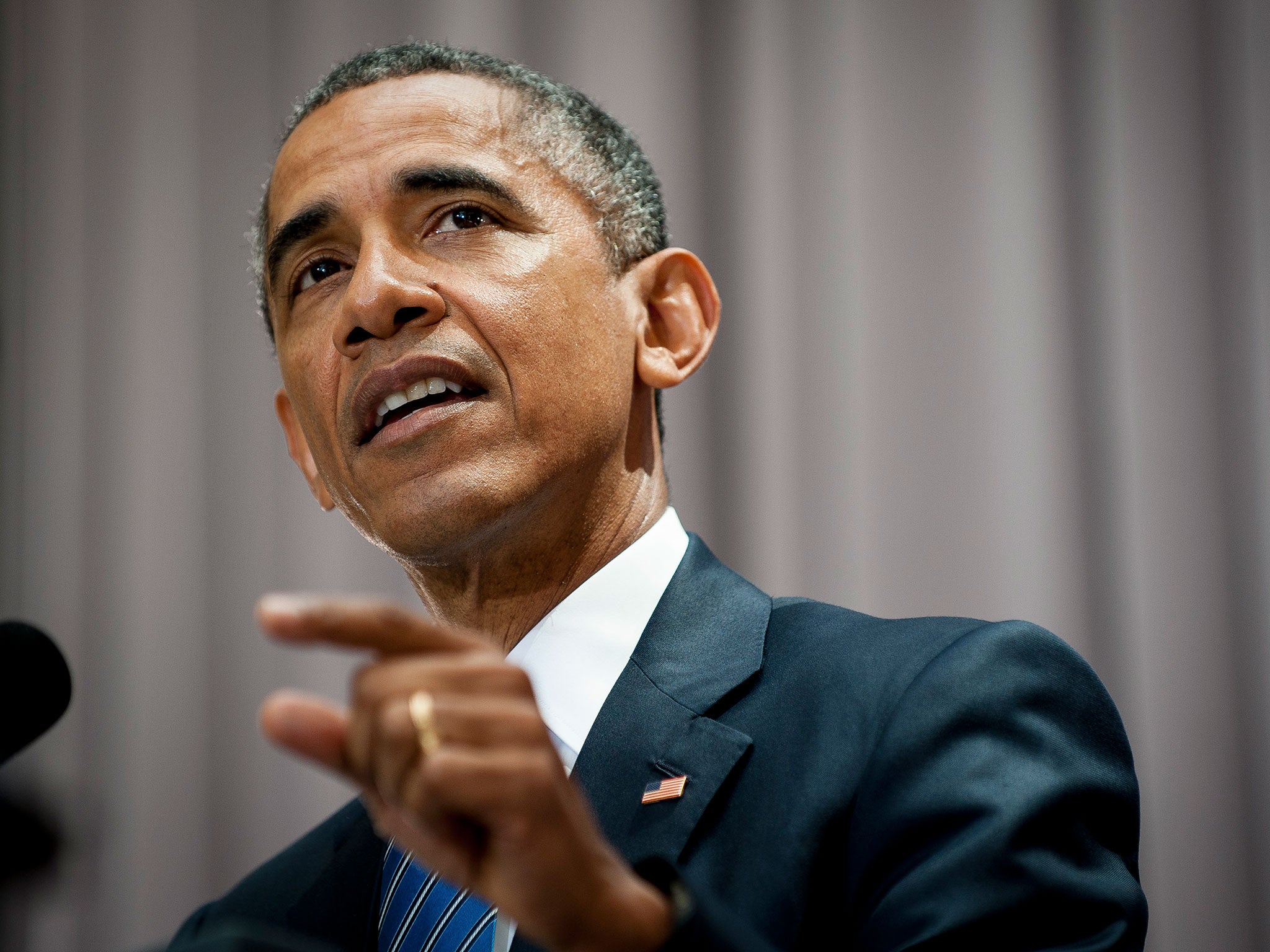Iran nuclear talks: Obama sows seed of hope for a new era of co-operation with Tehran
Mr Obama did not answer directly when asked whether he would have to use military force to stop Iran getting a nuclear weapon if the deal fell through

Your support helps us to tell the story
From reproductive rights to climate change to Big Tech, The Independent is on the ground when the story is developing. Whether it's investigating the financials of Elon Musk's pro-Trump PAC or producing our latest documentary, 'The A Word', which shines a light on the American women fighting for reproductive rights, we know how important it is to parse out the facts from the messaging.
At such a critical moment in US history, we need reporters on the ground. Your donation allows us to keep sending journalists to speak to both sides of the story.
The Independent is trusted by Americans across the entire political spectrum. And unlike many other quality news outlets, we choose not to lock Americans out of our reporting and analysis with paywalls. We believe quality journalism should be available to everyone, paid for by those who can afford it.
Your support makes all the difference.President Barack Obama says a constructive relationship with Iran could be a by-product of the deal to limit its nuclear programme, but it won’t happen immediately – if at all.
Mr Obama told CNN in an interview aired on Sunday that Iran’s “nuclear problem” must be dealt with first.
He said the agreement reached last month to remove crippling economic sanctions on Iran in exchange for restrictions on its nuclear programme achieves that goal “better than any alternative”. Republican politicians largely disagree with Mr Obama’s assessment that the deal blocks Iran’s path to a nuclear weapon, as do some of his own Democrats.
Mr Obama said resolving the nuclear issue makes it possible to open broader talks with Iran on other issues. He named Syria as an example.
“Is there the possibility that, having begun conversations around this narrow issue, you start getting some broader discussions about Syria, for example, and the ability of all the parties involved to try to arrive at a political transition that keeps the country intact and does not further fuel the growth of [Isis] and other terrorist organizations? I think that’s possible,” Mr Obama said. “But I don’t think it happens immediately.”
Mr Obama was interviewed by CNN’s Fareed Zakaria last Thursday, hours before Chuck Schumer, the Senate’s leading Jewish Democrat, announced he would oppose the agreement. Congress is expected to vote in September on a measure “disapproving” the deal, to which Mr Obama has promised a veto. Politicians would then have to find enough votes to override Mr Obama.
In the interview, Mr Obama did not answer directly when asked whether he would have to use military force to stop Iran getting a nuclear weapon if the deal fell through. “I have a general policy on big issues like this not to anticipate failure.”
Join our commenting forum
Join thought-provoking conversations, follow other Independent readers and see their replies
Comments